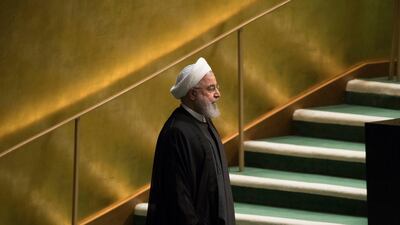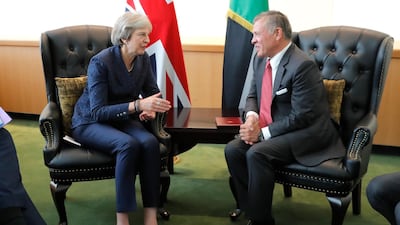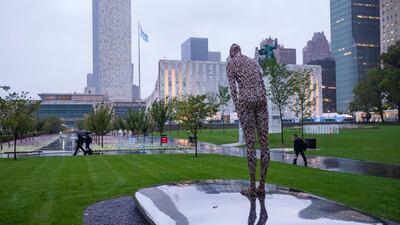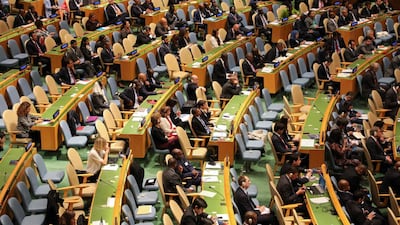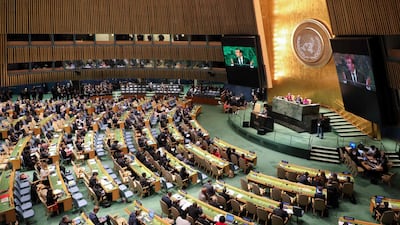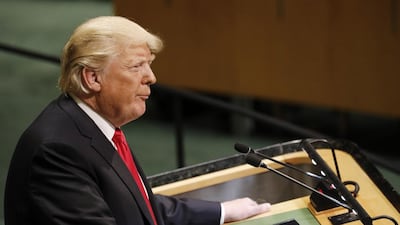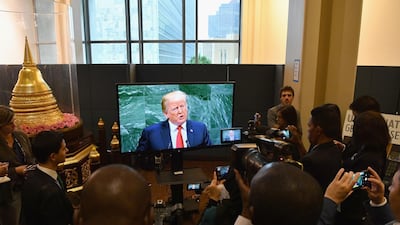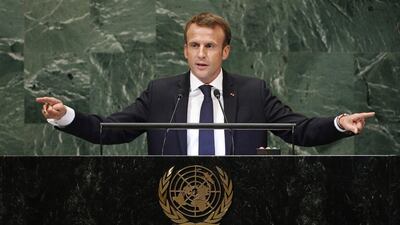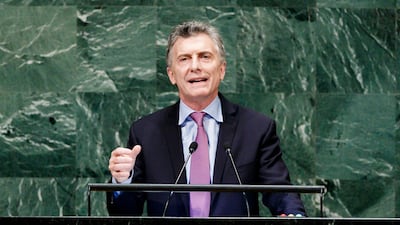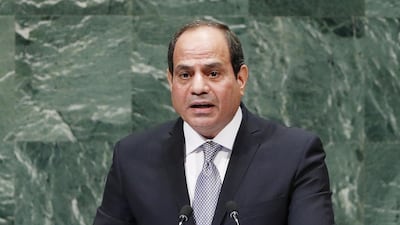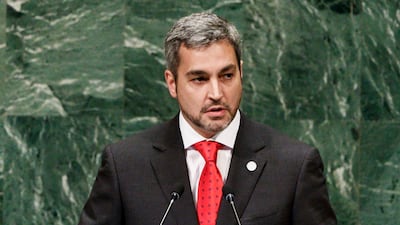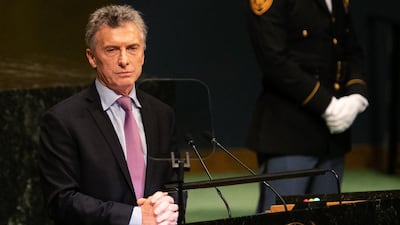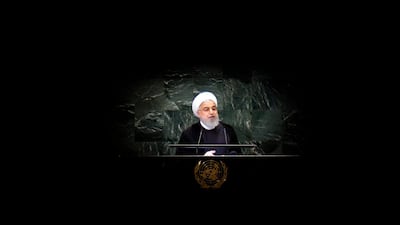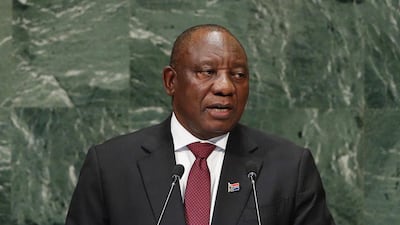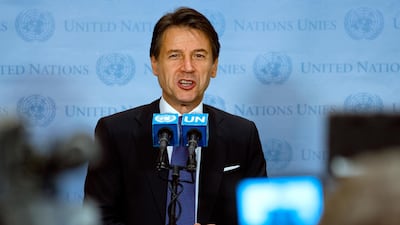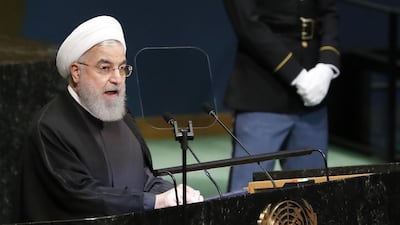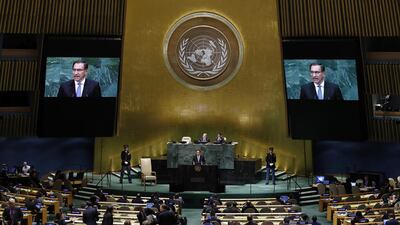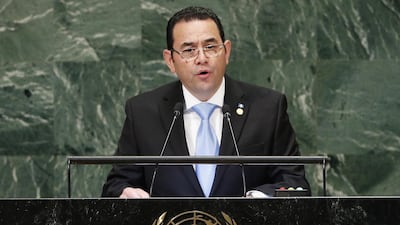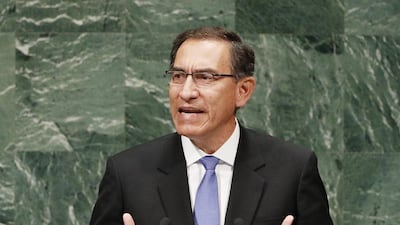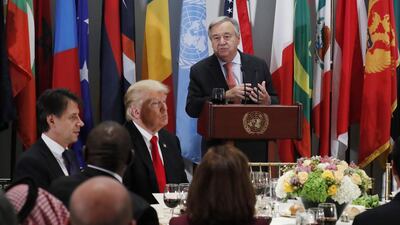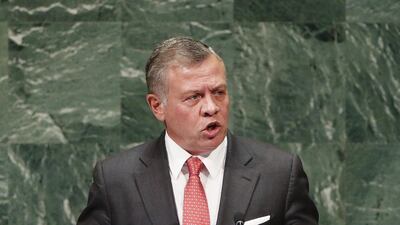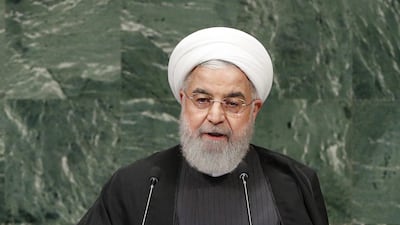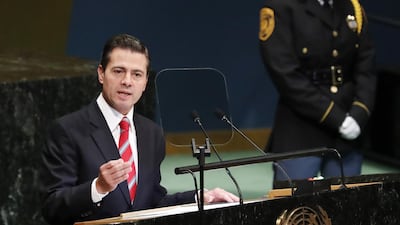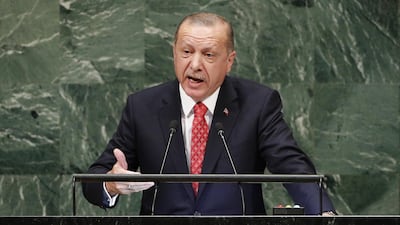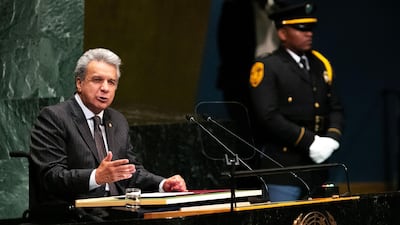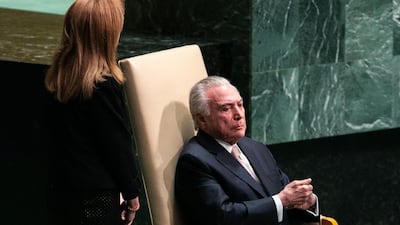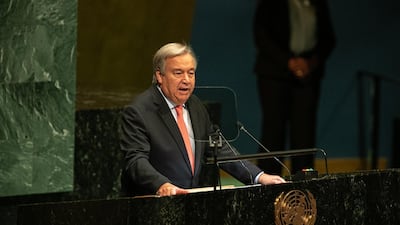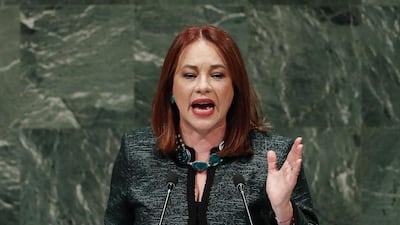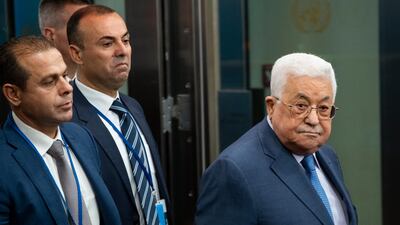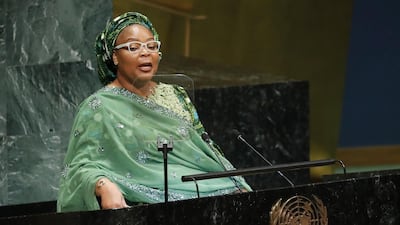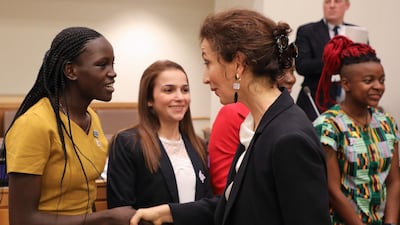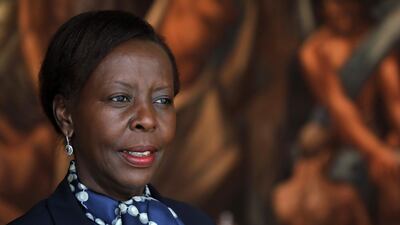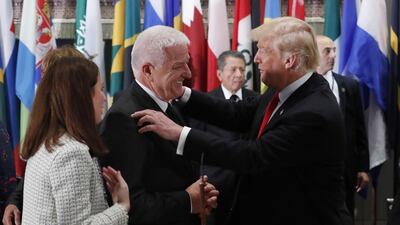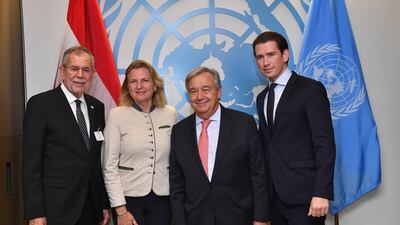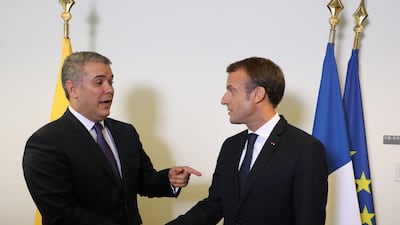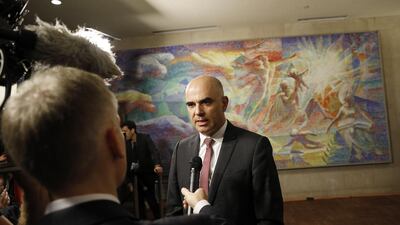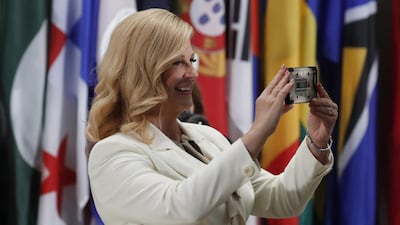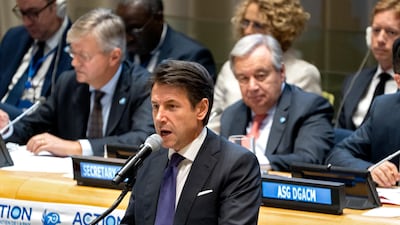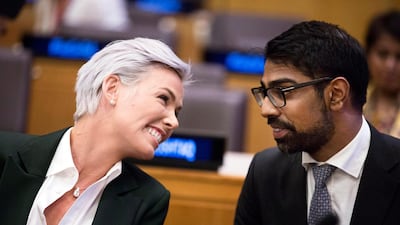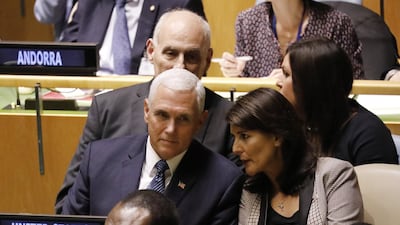Hours after President Donald Trump suggested he was a “lovely man”, Hassan Rouhani warned the UN on Tuesday that the US administration was out to over throw his government.
"It is ironic that the US government does not even conceal its plan for overthrowing the same government it invites to talks," Mr Rouhani said in a speech at the United Nations General Assembly. "For dialogue to take place, there is no need for a photo opportunity. The two sides can listen to each other right here in this Assembly.
"I am starting the dialogue right here, and state, in unequivocal terms, that the question of international security is not a toy in American domestic politics.”
President Trump had defended his decision to bail from the 2015 nuclear accord with Iran by calling for the country’s isolation, accusing its leaders of sowing "chaos, death and destruction”.
The duelling speeches to the UN General Assembly in New York set the stage for an intense battle over Iran's regional role, nuclear ambitions and ultimately its relationship with the country the regime vilifies as the Great Satan.
Mr Rouhani said that Iran was the victim of the US re-imposition of sanctions which has sliced the country’s oil exports by more than one million barrels per day and prompted dozens of international businesses to cut trade and investment. “Unlawful unilateral sanctions in themselves constitute a form of economic terrorism,” he said.
The Iranian leader said it was an illusion that peace and security could be obtained by punishing others. He claimed to see “a Nazi disposition” in the policies of attack.
“Confronting multilateralism is not a sign of strength, rather it is a symptom of a weakness of intellect,” he added.
As his own signature achievement after taking power in 2013, Mr Rouhani has pledged to stay in the accord should other partners, particularly Europe, finds a means to withstand the US sanctions pressure.
“We are pleased that the international community did not acquiesce to the US’s illegal and unilateral withdrawal from that agreement,” he said, adding a warning that America would pay a future price for its role. No state and nation can be brought to the negotiation table by force and if so what follows is the accumulation of the grapes of wrath to be reaped later by the oppressors.”
There was a war of words between the two men over President Trump’s claim that Iran had requested a meeting with him. Mr Rouhani denied that and said the US had requested a head-to-head eight times at the 2017 meeting. "Not this year, nor last year," Mr Rouhani said in a CNN interview. "We have never made such a request for a meeting with the President of the United States.”
_______________
Read more:
Trump puts Iran's regional aggression at centre of UNGA speech
Donald Trump and Hassan Rouhani set for UN clash
Anwar Gargash: Arabs must be at table in any new Iran negotiations
______________
Fedrica Mogherini, the EU foreign affairs spokeswoman, had better news for Iran, after a late night meeting involving Britain France, Germany, Russia and China agreed to set up a special purpose mechanism to sustain trade with Iran in way that would ring-fence US sanctions. “In practical terms this will mean that EU member states will set up a legal entity to facilitate legitimate financial transactions with Iran, and this will allow European companies to continue trade with Iran,” she said.
Ms Mogherini also claimed that engagement with Iran allowed it to deal with concerns about the country’s repression and regional aggression. However experts see Iran’s failure to improve its own record as a handicap for Mr Rouhani’s charm offensive.
Iran could also end its involvement some of the regional conflicts that it is involved in, such as Yemen and Syrian,” said Barbara Slavin, head of the Future of Iran initiative at the Atlantic Council. “It could also improve its human rights record.”
Theresa May, the British prime minister, has promised to raise with Mr Rouhani the fate of dual nationals, including the consultant Nazanin Zardari-Ratcliffe, that have been imprisoned by the Iranian regime.
